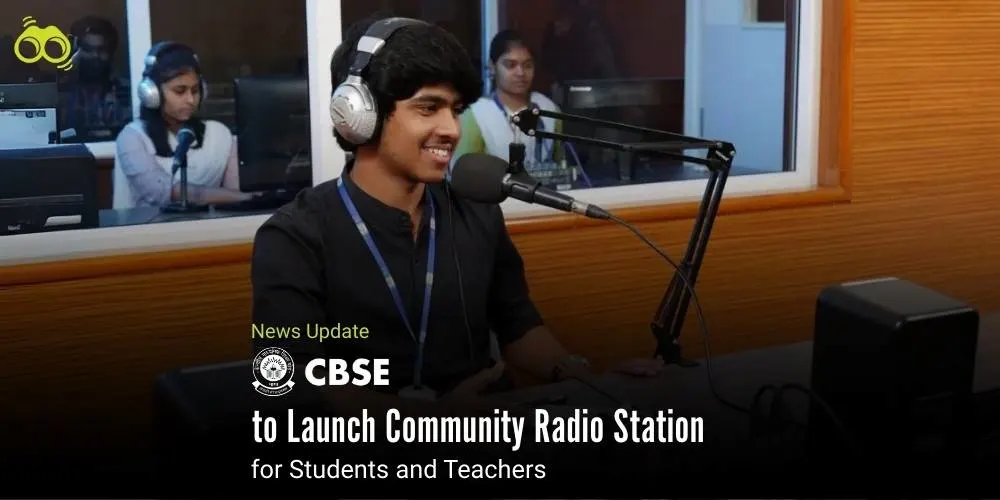CBSE Applies for Community Radio Licence to Expand Learner Engagement Nationwide
Inclusive Broadcasting: CBSE Approves Community Radio to Strengthen Educational Outreach
In a strategic move to enhance communication and learner engagement, the Central Board of Secondary Education (CBSE) has announced plans to establish a dedicated community radio station for its students, teachers, and affiliated stakeholders. Approved during the board’s recent Governing Body meeting, the initiative aims to create an inclusive, low-power broadcasting platform that complements existing digital efforts such as the Shiksha Vani podcast, which currently hosts over 400 NCERT-aligned audio lessons for Classes 9 to 12.
According to senior officials, CBSE will initiate consultative meetings over the next six months with education experts and stakeholders to prepare its application for a community radio licence. The board will also assess the financial implications of setting up the station, ensuring that infrastructure and sustainability are addressed before launch. Once licensed, content plans will be finalised to reflect the diverse needs of CBSE’s nationwide community.
The proposed station will operate within the third tier of Indian broadcasting, distinct from public and commercial radio. Community radio is designed to amplify local voices—particularly those from marginalised groups—on issues such as education, health, nutrition, and agriculture. With broadcasts in local languages and dialects, it fosters stronger community connections and more inclusive dialogue. India currently hosts 540 licensed community radio stations, primarily run by educational institutions, NGOs, and registered societies, with government schemes actively supporting expansion in rural and remote areas.
In parallel, CBSE has approved the introduction of open-book assessments for Class 9 beginning in the 2026–27 academic year. This reform, aligned with the National Curriculum Framework for School Education (NCFSE) 2023, aims to shift classroom assessment from rote memorisation to competency-based learning. The board plans to incorporate open-book formats into three pen-paper tests per term across core subjects, including languages, mathematics, science, and social science. A pilot study conducted in 2023 revealed mixed student performance but strong teacher support, prompting CBSE to develop standardised sample papers and structured guidance to ensure quality and consistency. Together, these initiatives reflect CBSE’s evolving approach to learner-centred education, combining media innovation with pedagogical reform.CBSE’s dual focus on inclusive broadcasting and critical thinking marks a progressive shift in India’s school education landscape.
Editor’s Note:
The Central Board of Secondary Education’s recent decisions reflect a clear commitment to inclusive and learner-focused education. The proposal to launch a community radio station is a timely step towards improving access to educational content, especially for students and teachers in remote areas. By using local languages and addressing community-specific issues, the station can strengthen connections and support meaningful learning. The introduction of open-book exams for Class 9 also signals a shift in assessment practices. It encourages students to think critically and apply knowledge, rather than rely on memorisation. This change aligns with national education reforms and responds to feedback from teachers and pilot studies.
Skoobuzz asserts that together, these initiatives show that CBSE is taking thoughtful steps to modernise school education. They aim to make learning more relevant, accessible, and engaging for all.














0 Comments (Please Login To Continue)